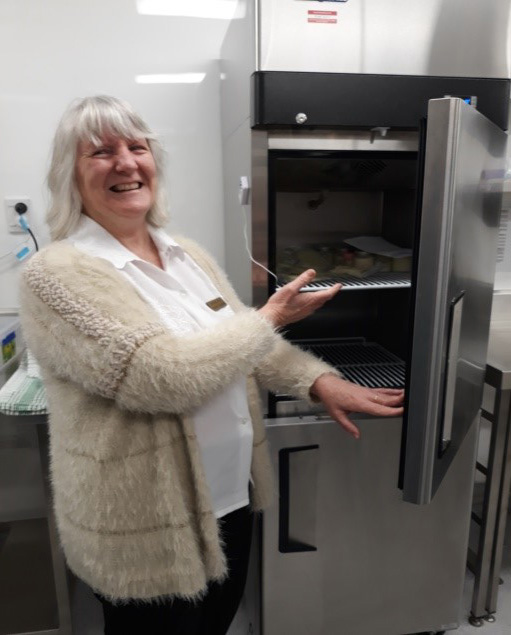In 1997 I heard a talk by Lois Arnold, who started milk banking in North America, and thought, “That sounds easy, and useful.” Another acquaintance told me about the milk bank in Ireland that occupied a room the size of a large bathroom, which put the resources into perspective. However I was living in Zimbabwe at the time and things were unsettled, so I didn’t pursue it.
I moved to South Africa and was chosen to attend the second WABA Global Forum. After 11 days of talks on breastfeeding from experts around the world, we were asked to commit to a project back in our own countries. I told 2000 people that I would start a milk bank in my new country. So Milk Matters started in Cape Town, and now supports over 30 hospitals in the Western Cape of South Africa. I also started and ran Drops4Life, an in-hospital milk bank near my home.
Then I met an Australian and moved to Australia. I missed milk banking and wrote to all the milk banks offering to volunteer. Somehow my letter got to a friend of a friend in New Zealand who told me of a lactation consultant job in Palmerston North, so I came on a one year contract and fell in love with the country. And now there is a milk bank in Palmerston North.
Receiving our first donation in September 2020:

That makes it sound easy, but it took several months of dedicated work by a group of volunteers to get the charitable trust structure set up. It would not have been possible without the partnership of the Wright Family Foundation, who has allowed us to use the beautiful kitchen at the bottom of Te Papaioea Birthing Centre, and also funded us generously. We had a wonderful opening ceremony on May 19 2021, which is World Milk Banking Day, since then have touched the lives of over 400 families.
I always saw milk banking as the missing link in breastfeeding promotion. Previously, we said that breast is best and yet when mums struggled, we produced the formula first. I noticed in my lactation consulting that if mums came to me still exclusively breastfeeding, they battled through their issues and solved them. If they had had formula in the hospital, a psychological barrier had been crossed, and they were equally likely to give up breastfeeding as to continue.
I have been thrilled to hear that exclusive breast milk feeding rates have gone up in our DHB since Whangai Ora started giving out milk in November 2020. I have also been deeply touched to see how many of our recipients worked so hard at their breastfeeding that they became donors, to give back. Up to 20% of our donors at any one time used to be recipients, and they give more than their share of milk. This proves yet again that a tiny investment in breastfeeding support in the very beginning has huge benefits.
Whangai Ora does not simply hand out milk, but works with the recipients to maximise their own supplies. Any volume of mum’s own milk is valuable, and studies show that a small volume of mum’s own milk put into a container of donor milk can re-seed it to make it more personalised for that baby. Human milk is magical!
There hasn’t been much time outside the milk bank in the last year since it’s taken off so dramatically. I used to enjoy gardening, reading and writing, and hope to go back to the local Square Dancing group once things are safer. I am close to retirement age and my focus this year is to build up the team so that we have more pasteurising technicians and lactation consultants to support the recipients. I’m not sure if I will actually ever retire, but it would be good to have the occasional day off.
Whangai Ora can be contacted on info@whangaiora.org.nz, on 0272669547 or through FB, Instagram or our website www.whangaiora.org.nz
